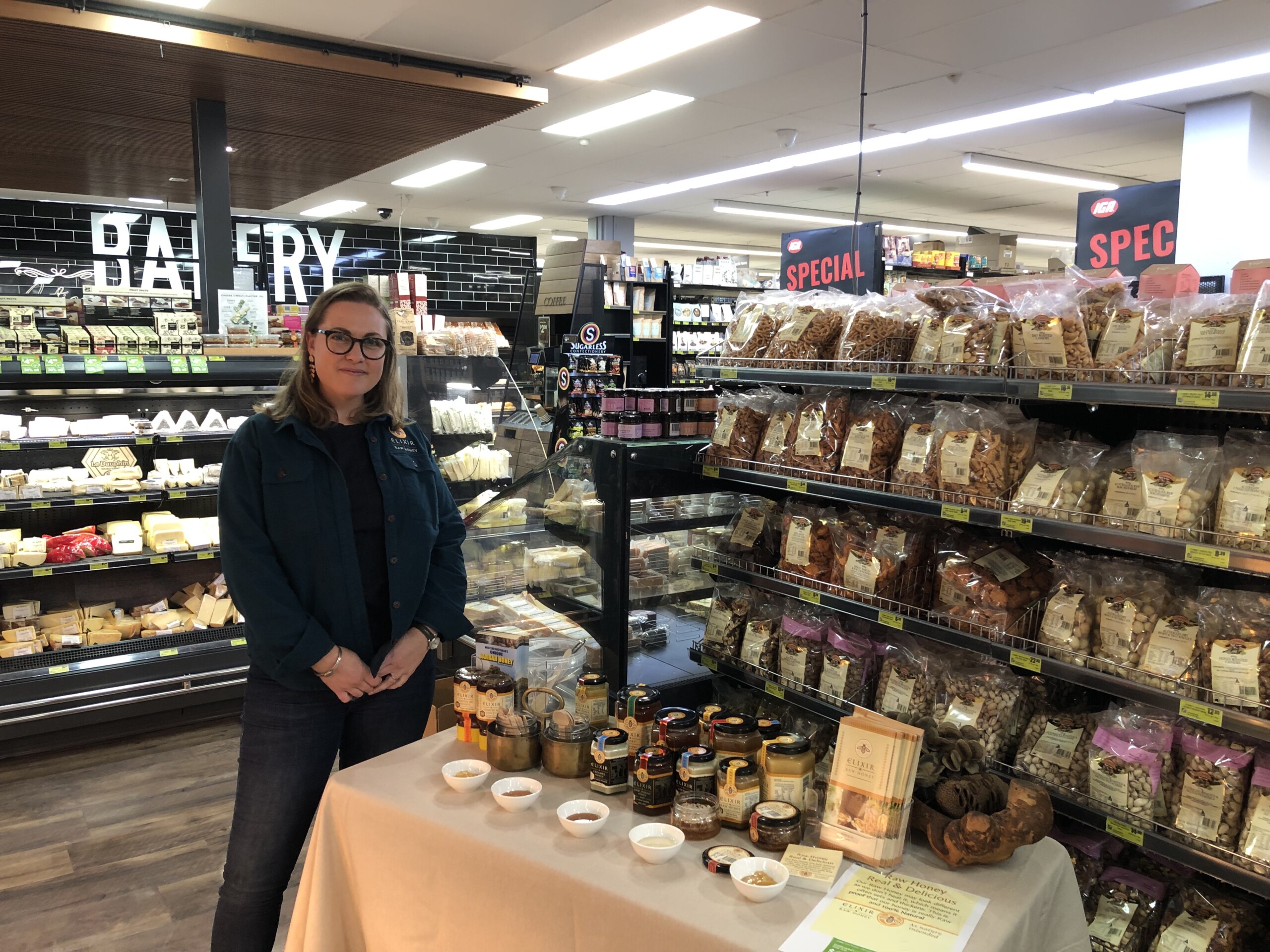Meet Kate and Matteo from Elixir Honey
RAW, UNIQUE AND SEASONAL
Elixir Honey was founded over 20 years ago back when raw honey wasn't really available (unless you had your own bees!). As consumers, we didn't know honey could taste completely different depending on the season, the terroir, or when the honey was extracted from the hive.
Today we are lucky to have a wonderful range of local, raw honey available to us. We are especially lucky here in Australia where our honey bees have not yet been exposed to the terrible Varroa mite, which is causing widespread destruction to hives around the world.
The Grocer has been working with Elixir Honey for the past 11 years. Kate and Matteo are passionate about flavour, keeping the honey as natural as possible and, of course, ensuring the ongoing health of their honey bees.
Kate very generously chatted with Louise recently about her and Matteo's journey into beekeeping and why "slow honey" has a superior flavour.
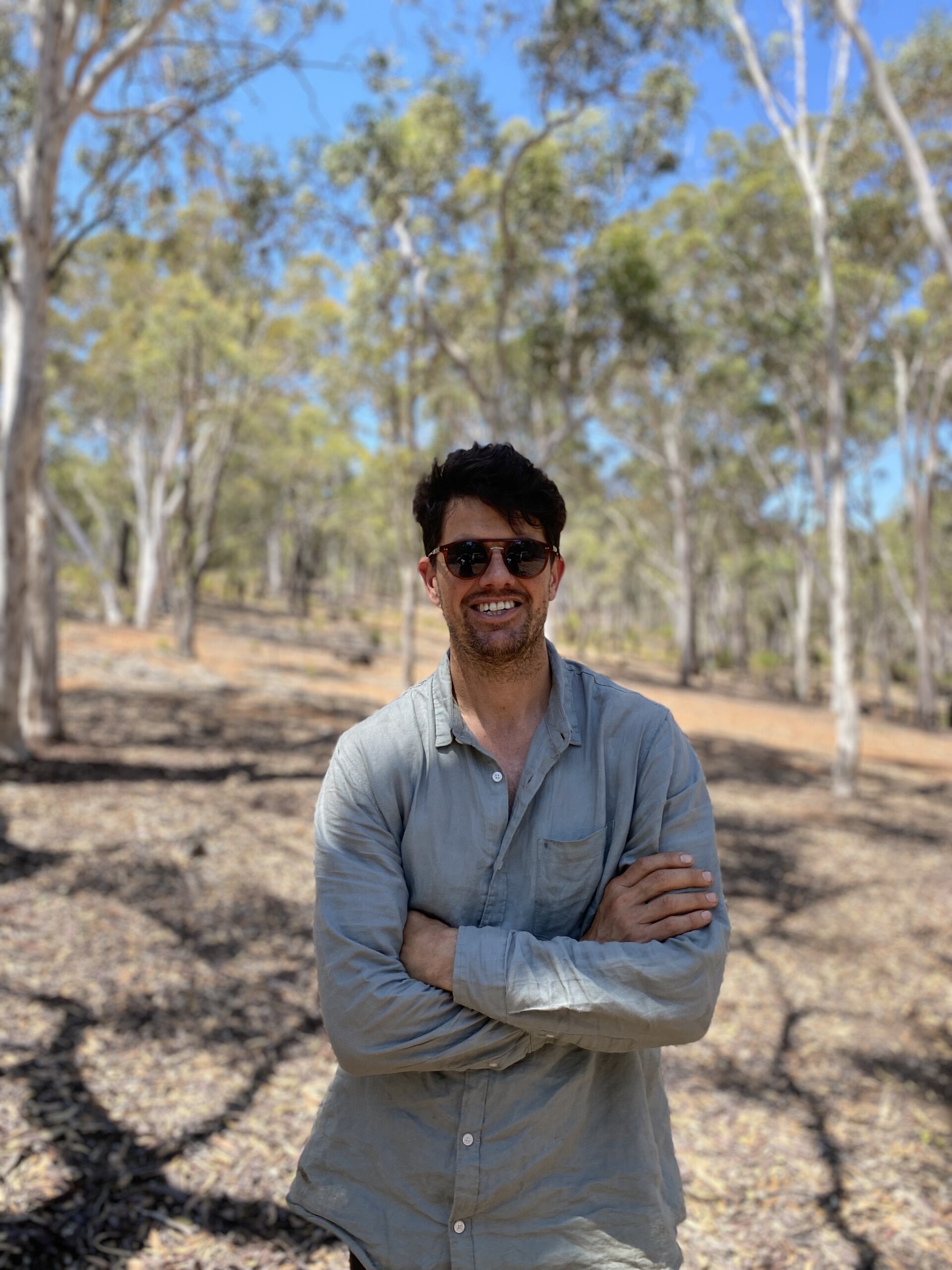
How did you become interested in beekeeping?
Our journey to full time beekeeping is a little unusual to say the least! Matteo was born in Kenya and grew up on his family farm on the edge of Lake Naivasha. There they produced vegetables, fruit, beef cattle and dairy for both the local and export markets. A large proportion of the farm was a nature corridor connecting a national park to the lake, so it also had an abundance of wildlife. The lifestyle gave Matteo a real love of the bush and the natural world.
After moving to Australia, Matteo embarked on a career as an Architect, but the love of bees and the passion for nature and the outdoors eventually saw his beekeeping hobby morph into full time career. That passion for the outdoors and beekeeping was contagious and Kate has now made the treechange as well, leaving her job as a criminal defence lawyer to work as a beekeeper with Elixir Honey.
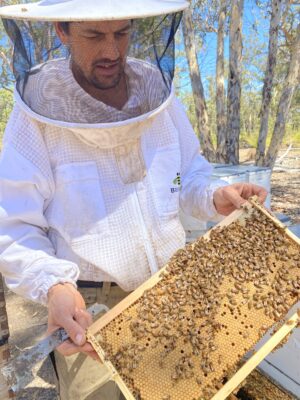
What does a day in the life of a beekeeper look like?
Together, we run 400 hives. The work is seasonal, following the flowering of the bush throughout Western Australia. The apiary sites that our bees are kept on extend from Warradarge in the mid-west region of Western Australia to Ravensthorpe on the far South Coast.
Depending on the time of year, the work is always changing. Our tasks vary from managing the health of the hives, queen bee breeding, moving bees through the night to new flowering bushlands, long drives through the countryside looking for the next honey flow, some dawn until dusk days with the beehives getting the surplus honey off, followed by extracting the honey in our extracting shed, to pouring the honey into jars, labelling, and delivering our Elixir Honey products. Between the two of us we do it all.
What is the most challenging aspect of creating your products?
There are a couple of key challenges in producing Elixir’s honey. The first is maximising the quality of the honey produced by our hives. We harvest what we call “slow honey”. By that we mean we leave the honey on the bees for longer than industry standards which means our bees take the time needed to properly mature their honey in the frames. From our experience, honey treated this way has a very low moisture content, higher pollen and propolis content and superior flavour, body, and aromas. We have never pasteurised, blended, homogenised, or filtered our honey so we must be much more diligent with the plants the bees are foraging.
The second challenging aspect is keeping our RAW honey as RAW as possible. That means not exposing the honey to any heat throughout the extraction and bottling processes. We have developed a unique method to extract and bottle our honey which ensures the colour, flavour and texture of the RAW honey is not changed by the process. This means we cannot store our RAW honey in the conventional ways honey packers do and we have to move quickly to process the honey straight from the hive to bottling. We believe the extra work this takes pays off and we find the texture and flavours we get in our RAW honey product is unlike any other on the market. The honey can then be used in many versatile ways with the flavours and aromas intact.
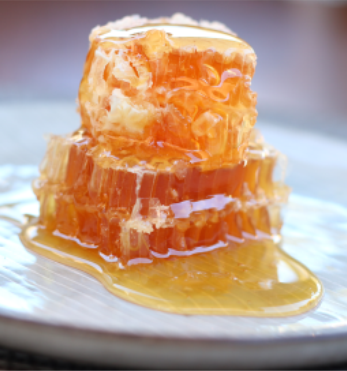
Do you have a favourite product from your range, and if so, how do you prepare it or serve it?
Honey is so good when used to cut through acids and salt in food. We use honey daily! Depending on what we are preparing, we will choose a different honey to compliment the dish. In a summery light, fresh fruit or salad dish we would choose one of earlier spring flowering honey such as Rose Banksia (Banksia laricina), Parrot Bush (Banksia sessilis) or a Coastal Wildflower (Spring Multiflora) for its light tropical, citrus notes. In the winter months we find the richer varieties of honey work beautifully in heartier dishes such as Wandoo (Eucalyptus accedens) and Blackbutt (Eucalyptus patens). We believe there is honey for almost every dish.
Our traditional cut honeycomb is also wonderful on a cheese platter- there is something about honeycomb to balance the saltiness and creaminess of a Brebirousse d'Argental cheese!
When you are not eating at home, where do you like to eat?
We are blessed with great restaurants in WA where chefs have continued to honour WA growers and producers on their menus. There are too many to name, but we have recently had memorable meals at Wildflower, Servo, Millbrook, Fleur, Coogee Common… the list goes on!
We are blessed with an 800sqm kitchen garden at home which means we are always eating seasonal fruits and vegetables. Without sounding kitsch, my mum Doreen cooks incredible food, so a deal is usually struck with us providing the homegrown ingredients and Doreen cooking up a feast.
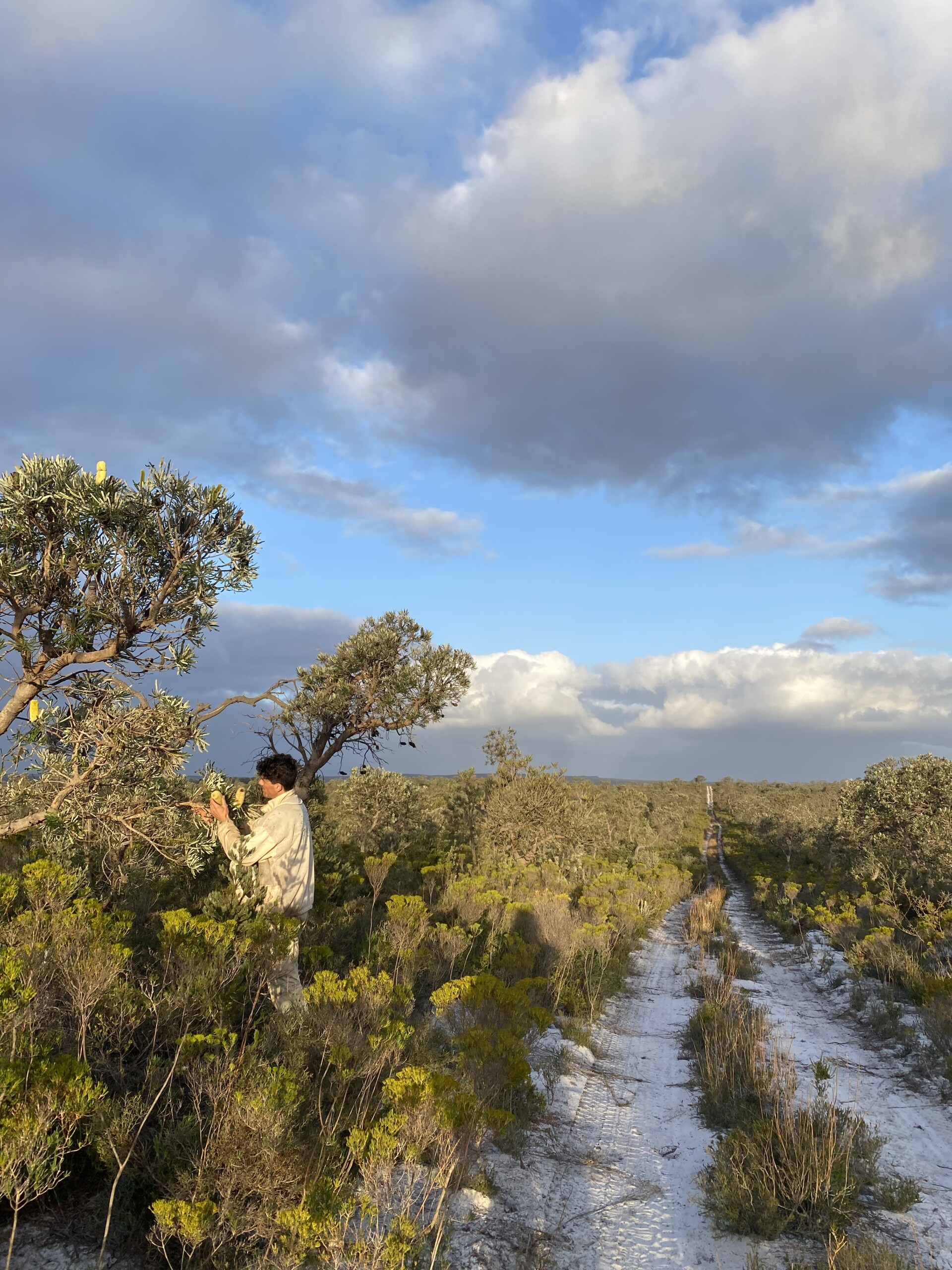
What is the Proof of Pure Guarantee?
We have committed to our Proof of Pure guarantee which involves regularly testing our honey at independent laboratories to prove our honey is free of chemicals, additives, herbicides (e.g. glyphosate) and pesticides.
We also are routinely testing for a compound called HMF (Hydroxymethylfurfural), which is a indicator of heat damage and poor storage of honey. The lower the HMF, the more confident you can be in the freshness of the honey and the lack of damage done to it in the storing or packing.
Our honey routinely has low HMF. Recent test results for our Bottlebrush (Calothamnus quadrifidus) honey had a HMF of 3.2mg/kg. For context, the Codex Alimentarius Honey Standard of the Food and Agriculture Organisation (United Nations) recommends a HMF limit in honey of 40mg/kg.
Do you see any changes for your brand or product in the future?
This year we are celebrating 20 years of Elixir Honey and we are so proud to be a part of a company that was one of the first to bring real RAW honey to supermarket shelves.
In 2003 when Elixir Honey was established, the only honey available at supermarkets was pasteurised, homogenised, microfiltered and blended honeys. Elixir offered a real point of difference, and we are so proud of that history.
We will continue to produce the finest West Australian honey that captures nature in the purest sense.
